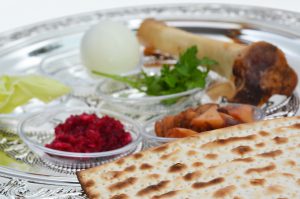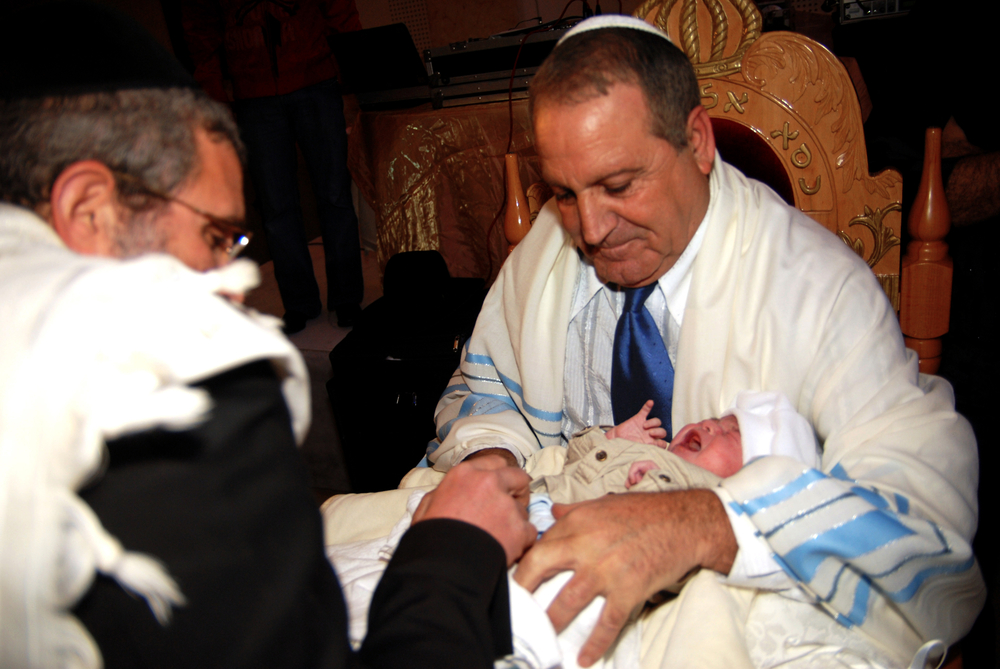Chametz on Shavuot
The Chatam Sofer says (Parshat Emor, page 61) that matzah (non-leavened bread) represents our spiritual aspect, while chametz (leavened goods) represents our physical aspect. On Passover, the primary focus is our spiritual exodus, which is represented by the fact that we must eat matzah and are forbidden to eat chametz for the duration of Passover. On Shavuot, there is a unique mitzvah (commandment) to bring a sacrifice from chametz, which is usually disqualified from being brought as a sacrifice. This alludes to our physical aspect, because on Shavuot, our physical bodies became sanctified with the Torah; something we were lacking before that point.
God is Not Looking for More Angels
This goes hand in hand with what the Chatam Sofer says elsewhere (Drashot, Shavuot, page 290 in the footnote), that the Jews desired upon receiving the Torah to be completely holy; disconnected from the physical world. But God told them that He was not interested in that. He doesn’t want them to be like Heavenly angels. He is specifically seeking human beings who are involved in this physical world, to be simultaneously engrossed in holiness. He wants us to sanctify our lives as physical beings, with all our physical needs and desires, to become elevated with the Torah, not to be disconnected from the physical aspect of this world.
This is what we merited on Shavuot, and this is our mission in life. It’s not two lives, our spiritual one and our physical one. As Jews, we need to combine both together and make our entire physical aspect sanctified with our spiritual life.
Sometimes we tend to make a distinction between the two facets of our lives. There are times when we are involved in spiritual pursuits, such as times we study Torah, during prayer, or when we are involved in any other good deeds, and times when we take care of our physical needs or are focused on enjoying ourselves. Upon receiving the Torah, we were instructed to make them one and the same; to combine all aspects of our physical lives with spirituality, thereby elevating our physical being. God is not looking for more angels. God specifically wants us to imbue the physical aspects of our lives with holiness.
His Act of Eating is Greater than their Fasting
There was once a spirit which attached itself to a person, and the people threatened the spirit that they would bring it to the Vilna Gaon if it didn’t leave. The spirit was very frightened by this threat. People asked why it was so scared of the Vilna Gaon who wasn’t known to be a person who fasted and pained himself to gain lofty spiritual levels. The spirit answered that the act of eating performed by the Vilna Gaon was far greater than the fasts of others.
Infusing Torah in our Lives – the Greatest Service
We have unlimited potential to reach great heights by applying the Torah to our physical lives; it’s a matter of attitude. Torah laws govern every aspect of our lives, and with proper adherence, thought and attention, we can infuse every move of ours with spirituality. Sometimes we feel that if we would need less physical involvement in this world, and if we had fewer materialistic temptations, we would be able to serve God all that better.
But that’s exactly the point. God is not seeking to have us serve Him as angels. The purpose of our creation is for a far higher form of service. The greatest service is the service of a Jew who incorporates Torah into his life, and infuses his physical aspect with the sanctity of the Torah. The mission we were charged with upon receiving the Torah was the lofty task of elevating our physical being and mundane activities to serve God with the proper attitude, in a holy fashion, as prescribed by the Torah.
By Rabbi Yitzchok Aryeh Strimber torah4every1@gmail.com


